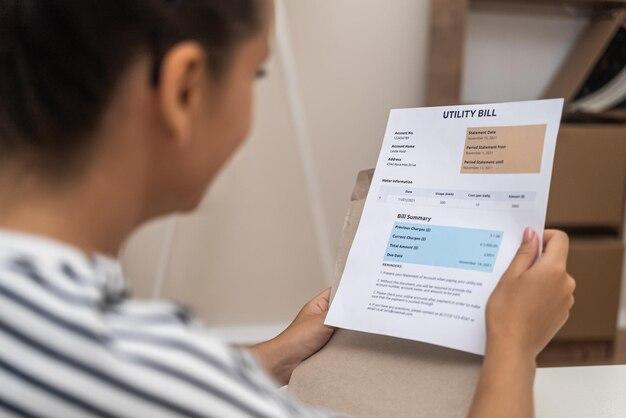What Is a Utility Bill Generator?
A utility bill generator is a digital tool—usually web-based—that allows users to create editable, customizable utility bills. These bills are designed to look like real documents and include fields such as:
-
Customer name and address
-
Meter number and readings
-
Billing period and due date
-
Utility type (electricity, gas, or water)
-
Charges, taxes, and totals
-
Provider name and logo
However, these generated bills are not official and should never be used for actual transactions, verification, or financial documentation.
✅ Legal & Safe Use Cases
Here are several fully legal and ethical scenarios where utility bill generators can be safely used:
1. Design Mockups & UI/UX Prototyping
If you're a designer building billing platforms, dashboards, or financial apps, utility bill generators let you create realistic-looking documents to fill out your UI. This helps demonstrate how your platform would display a real bill to end users — without exposing any personal or sensitive data.
✅ Example:
A UI/UX team uses a custom electricity bill in their prototype demo to show invoice display features.
2. Software Testing & Demos
Developers working on billing engines, document automation, or email notifications often need mock data. Utility bill generators provide testable documents to validate PDF output, data integration, and formatting.
✅ Example:
A developer tests an invoice-to-email feature using generated utility bills in PDF format.
3. Educational Use & Training Simulations
In classrooms or corporate training, realistic documents help simulate real-world tasks. Teachers and trainers use sample bills to teach:
-
How to read utility bills
-
Understanding charges, rates, and taxes
-
Basic financial literacy
✅ Example:
A finance teacher distributes custom water bills for a budgeting exercise in a high school classroom.
4. Marketing & Presentations
Sales and marketing teams often use visual content to pitch platforms and tools. A sample bill, created with a utility bill generator, makes presentations more believable and engaging.
✅ Example:
A startup includes branded utility bills in a slideshow to pitch their billing software to investors.
5. Props for Media & Entertainment
Filmmakers, YouTubers, and ad creators use utility bill generators to produce fake but realistic documents as set props. This avoids the need to use real customer data or personal info, ensuring privacy and legality.
✅ Example:
A video creator uses a fake gas bill as a prop in a comedy skit about late payments.
❌ Illegal or Unethical Uses (Avoid These)
It’s important to never use utility bill generators in ways that are deceptive, fraudulent, or criminal. Here are examples of what not to do:
❌ 1. Faking Identity or Residence
Using a generated bill to prove residency, rent a property, or open an account is fraudulent and punishable by law.
❌ 2. Submitting Fake Documents for Financial Gain
Whether it's a loan, credit card, or job verification, submitting a mock utility bill as an official document is illegal.
❌ 3. Misleading Branding
Copying the logo or layout of a real utility company to impersonate an actual bill could lead to copyright violations or impersonation charges.
❌ 4. Distributing Fake Bills as Real
Sending generated bills to others and passing them off as real could be considered fraud or forgery.
⚖️ Legal Tips for Using Utility Bill Generators
To stay on the safe side while using these tools, follow these tips:
1. Always Label the Document as “Sample” or “Demo”
This clarifies that the bill is for demonstration only and not an official document.
2. Use Fictional Names and Addresses
Avoid entering real customer data unless working within a secure, internal testing environment.
3. Avoid Using Real Company Logos
Use placeholders or fictional brand names to prevent impersonation or copyright issues.
4. Check Platform Terms of Use
Every utility bill generator has its own usage policy. Read it carefully to avoid violating terms.
5. Avoid Sharing Publicly Without Context
If you share generated bills on social media, clearly state they are mockups or samples to avoid confusion or misuse.



